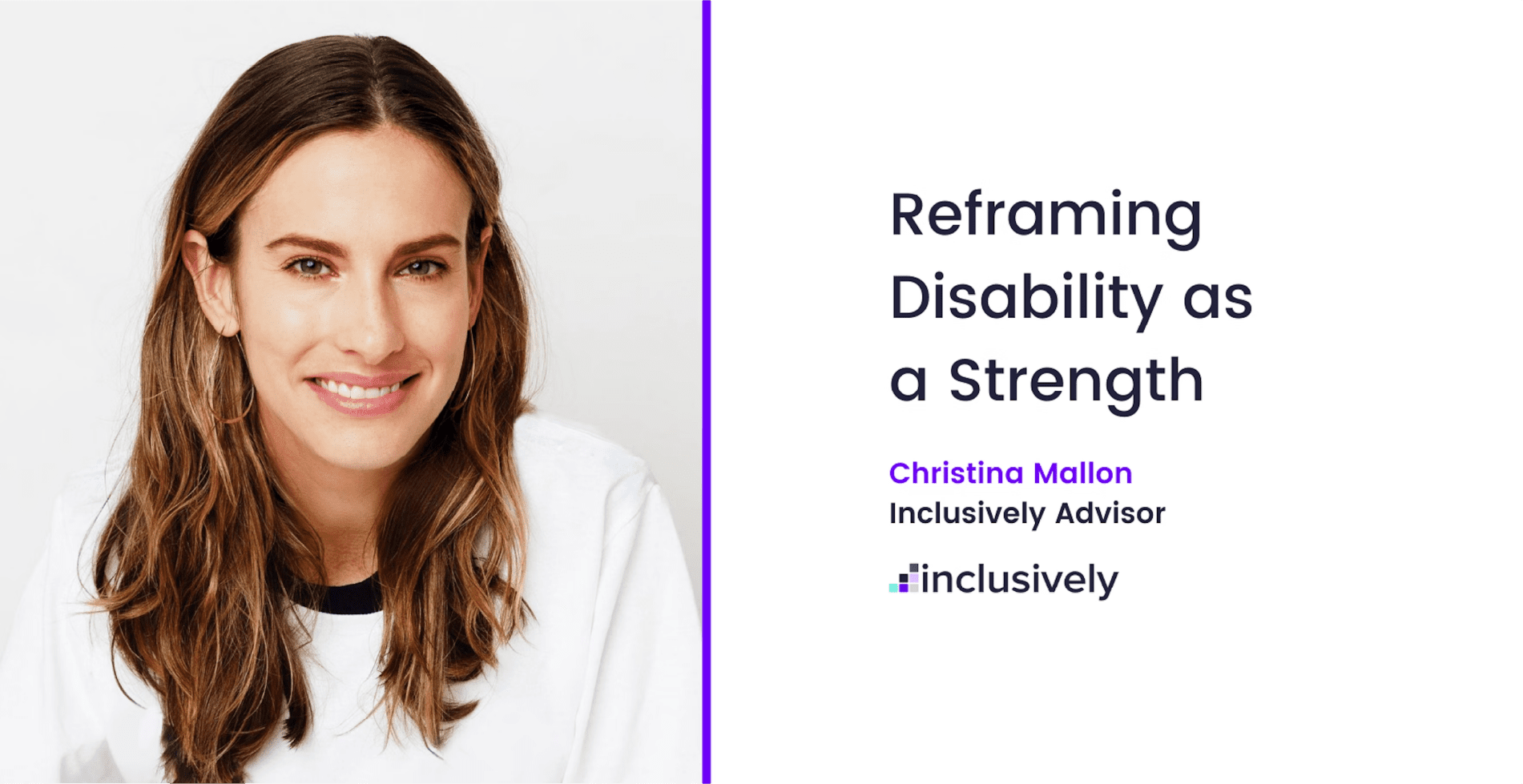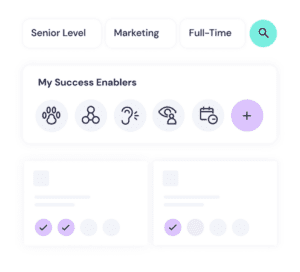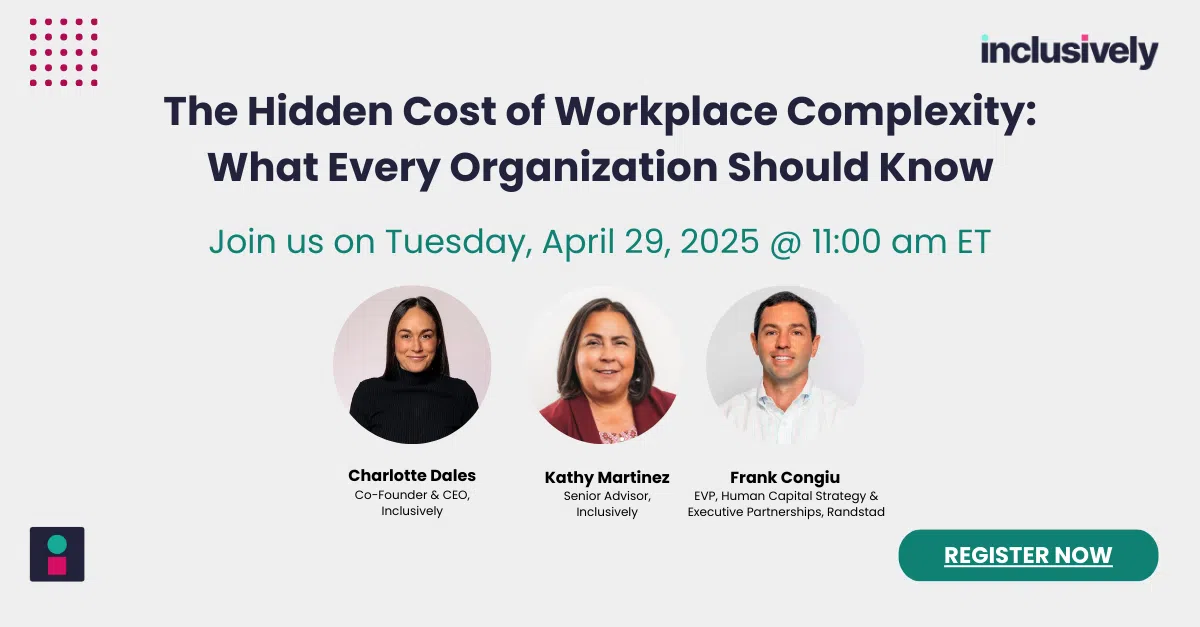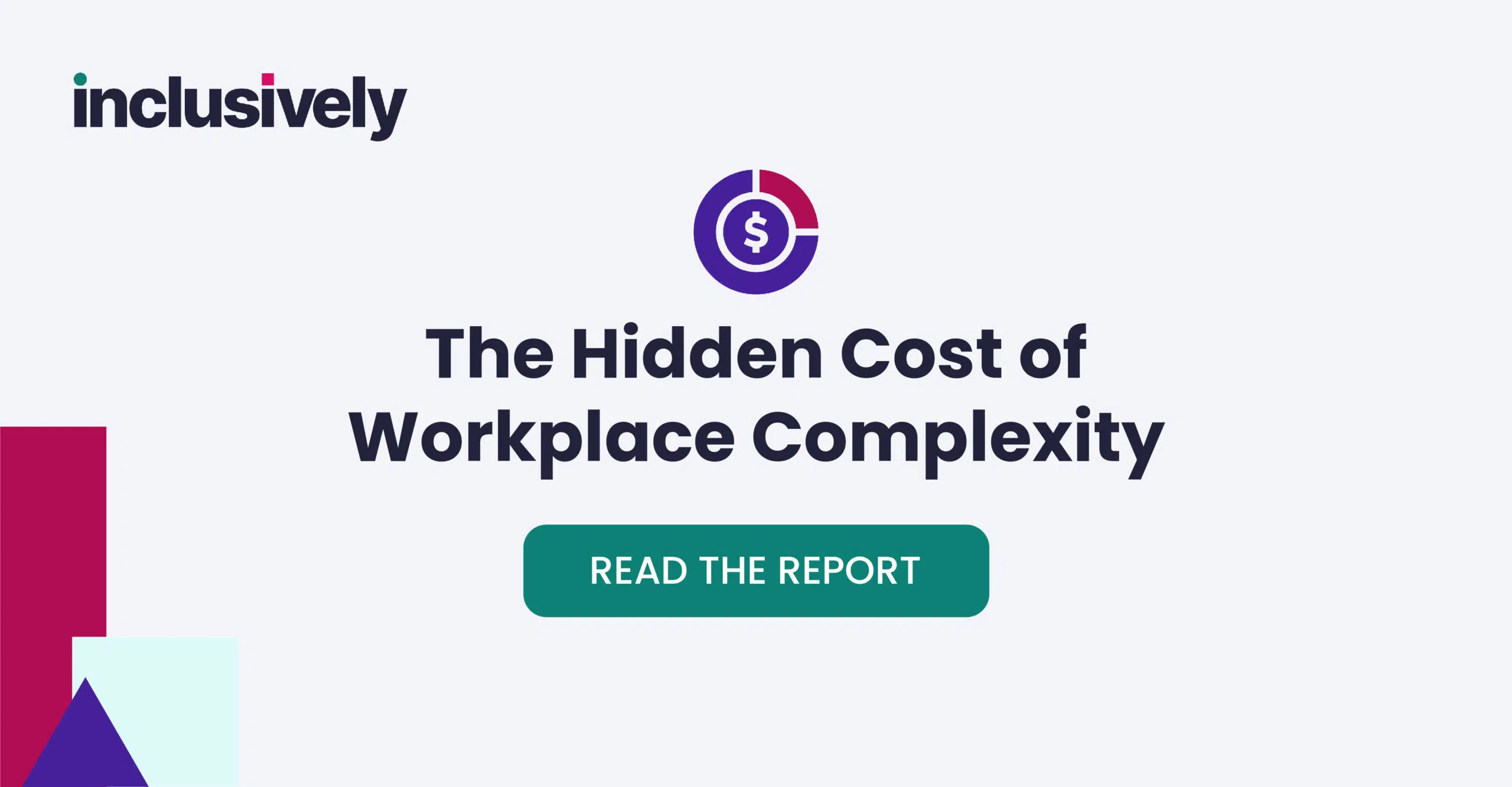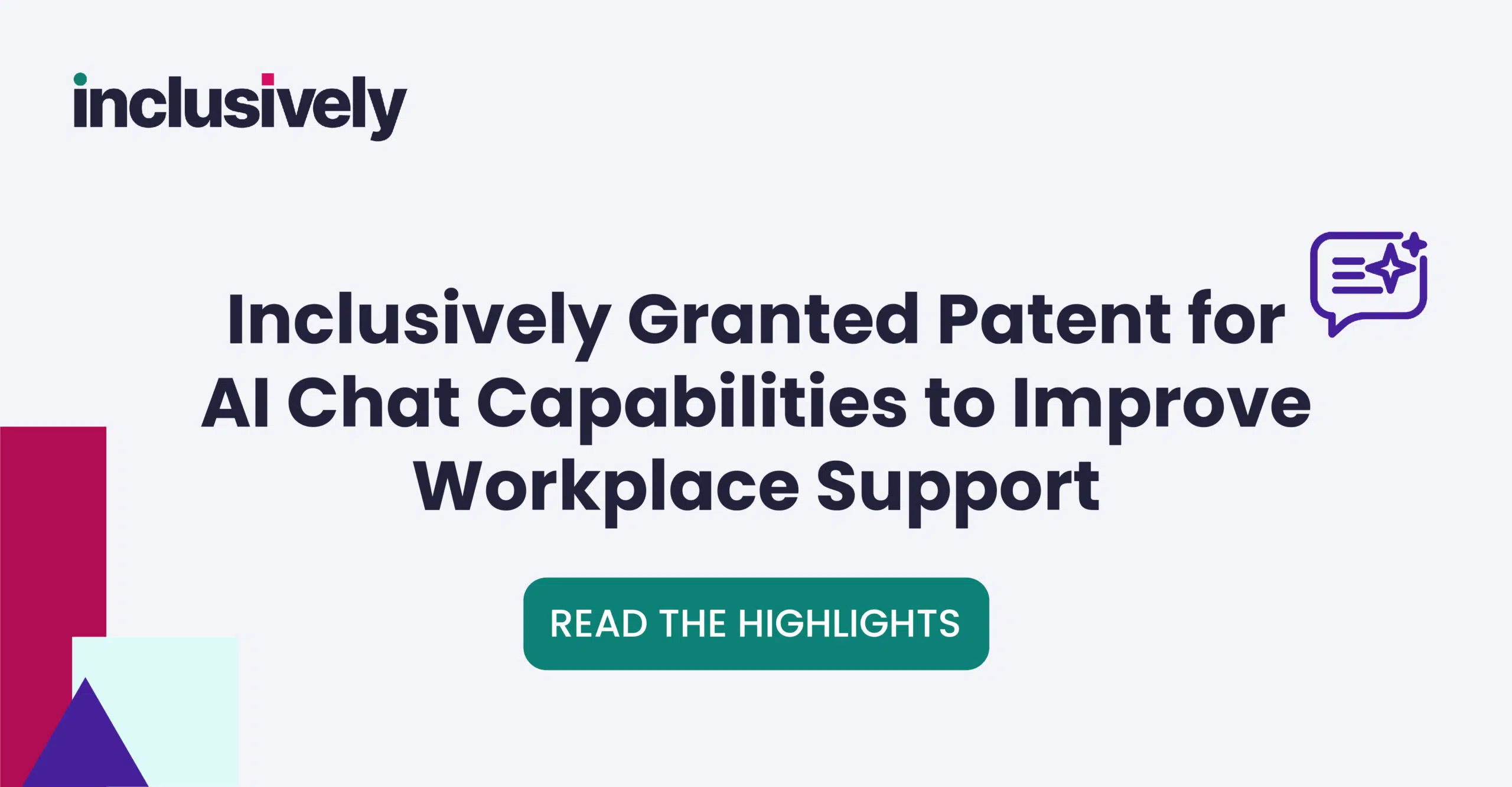Updated on October 18th, 2023
In celebration of National Disability Employment Awareness Month, Christina Mallon, an award-winning Inclusive Designer and Head of Inclusive Design and Accessibility at Wunderman Thompson Global and Inclusively Advisor, talks about becoming a Subject Matter Expert on disability and why we should all see disability as a strength
How is disability valuable?
I think employees need to look at their disability as a strength. Media and culture have represented disability primarily as a limitation, and we need to flip that idea on its head and show that disability is a strength because it gives us the perspective that comes with lived experience. It allows you to be a Subject Matter Expert on disability, taking that experience and applying it to provide a necessary lens. Necessary not least because every single person will experience disability at multiple times in their lives.
A lot of people still don’t see being a Subject Matter Expert as a job, but I think it is precisely because any area of business needs to be optimized and human-centered. The best businesses are customer-centered. Amazon does so well because it puts the customer first and makes the process extremely easy. When you want a customer to stay with the business for a really long time, you want to make sure that the experience will work for them at multiple points in their lives. By being an SMB you’re helping businesses be more disability-friendly and, therefore, more customer-friendly. Not to mention that the employment rate of people with disabilities is increasing which means, in turn, that people with disabilities will soon have more spending power. You want to make sure that you’re reaching them as a consumer set.
How should someone go about presenting their disability as a strength?
Play it up in interviews and do not hide your disability. Talk about it as a strength, how it’s valuable, how every industry needs this perspective on disability, and how all of humanity experiences it.
I can talk about my experience personally as a marketer. I started my career off working on Queen Latifah’s makeup line for CoverGirl and Ellen DeGeneres’s campaign for CoverGirl cosmetics. At that time, my arms were slowly becoming paralyzed. I saw that culture was changing to be more inclusive by working on these campaigns, but I didn’t see my new self in any brand experiences or products. So I thought about how to use my experience as a marketer to help ensure that brands were reflecting disabled consumers in their advertising. But then I realized that there was a missing piece: we needed to make sure that the products themselves were also inclusive. It was then that I became a part of an organization called Open Style Lab—which designs and produces adaptive clothing—to learn product design to be able to help brands create inclusive products. I was happy to be able to use my lived experience and my marketing skills, but I knew that brands needed more. I reached out to an inclusive design incubator nonprofit to see if I could join and shortly after joining, I became their Chief Brand Officer.
Afterward, I took that experience and created an inclusive design practice at Wunderman Thompson, a global marketing communications agency. It was there that I showed clients that the disability community were people to target for better business results.
I’ve gone on to do this with Tommy Hilfiger, Unilever, Microsoft, Dell and they’ve really looked at my expertise and my lived experience as well as the expertise that I’ve built with inclusive marketing and product design as beneficial to their organizations, as well as an effective way to reach customers and serve them better.
So I think often it’s just showing these brands that your insights will help them be better brands. And they’re really starting to realize that disability is a STRENGTH.
How could someone become an SME within their own industry?
By taking the time to study an industry or learn more or get an internship, and then applying the overlay of your disability experience with your expertise in say, engineering, it will allow you to become an expert in disability inclusion within engineering, just like I became an expert in inclusive marketing. You can integrate disability inclusion and representation within your day job.
I know that a lot of people with disabilities don’t want their identity to be all about their disability and they want their work to be something separate. I think that’s a valid position. Nevertheless, I took that path because I felt as though that would allow me to make the most change. My priority was making change and I have limited time to do it outside of work, so I wanted to do it within work. And I got to do that because Wunderman Thompson is an inclusive company, but not all companies are inclusive. It’s essential to find companies that are already inclusive instead of trying to make them inclusive when you’ve already joined. That’s exactly why I think Inclusively is great because it provides access to companies that have had access to training and have already said that they want to be more inclusive, which is really key.
How would you define an inclusive company?
I think a truly inclusive company is a company that gives you the tools necessary to be able to do your job in the best way that you can, in a place where you feel like you can bring your best self to work. They do that by giving you the tools and the environment that makes you feel welcome and appreciated. Those are the things I look for in an organization. And when I received them, I performed at my best.
Can you say more about disability as a kind of expertise?
For example, with me, I tend to be creative because I’m used to having to use creative problem-solving for a world that is not designed for me. That’s an example of how me having to always face these hurdles has allowed me to think with different parts of my brain more than others do. Someone with a vision disability might, in turn, be a very good listener and be able to take in lots of information aurally. So I think it’s looking at the experiences you’ve had that might have given you a better vantage point than others because of your disability. And to talk about that when in an interview you’re asked, “What are your strengths and weaknesses?”
Overview of a candidate’s job search indicators, including Senior Level, Marketing, Full-Time, My Success Enablers with a row of icons.
How Inclusively Works
Inclusively’s accessible employment platform and job matching technology goes beyond traditional search criteria and allows candidates to connect with opportunities that match their experience, skills, and workplace accommodations – called Success Enablers. Examples include screen readers, noise-canceling headphones, an emotional support animal, accessible parking and entrances, braille signage, and dozens more.
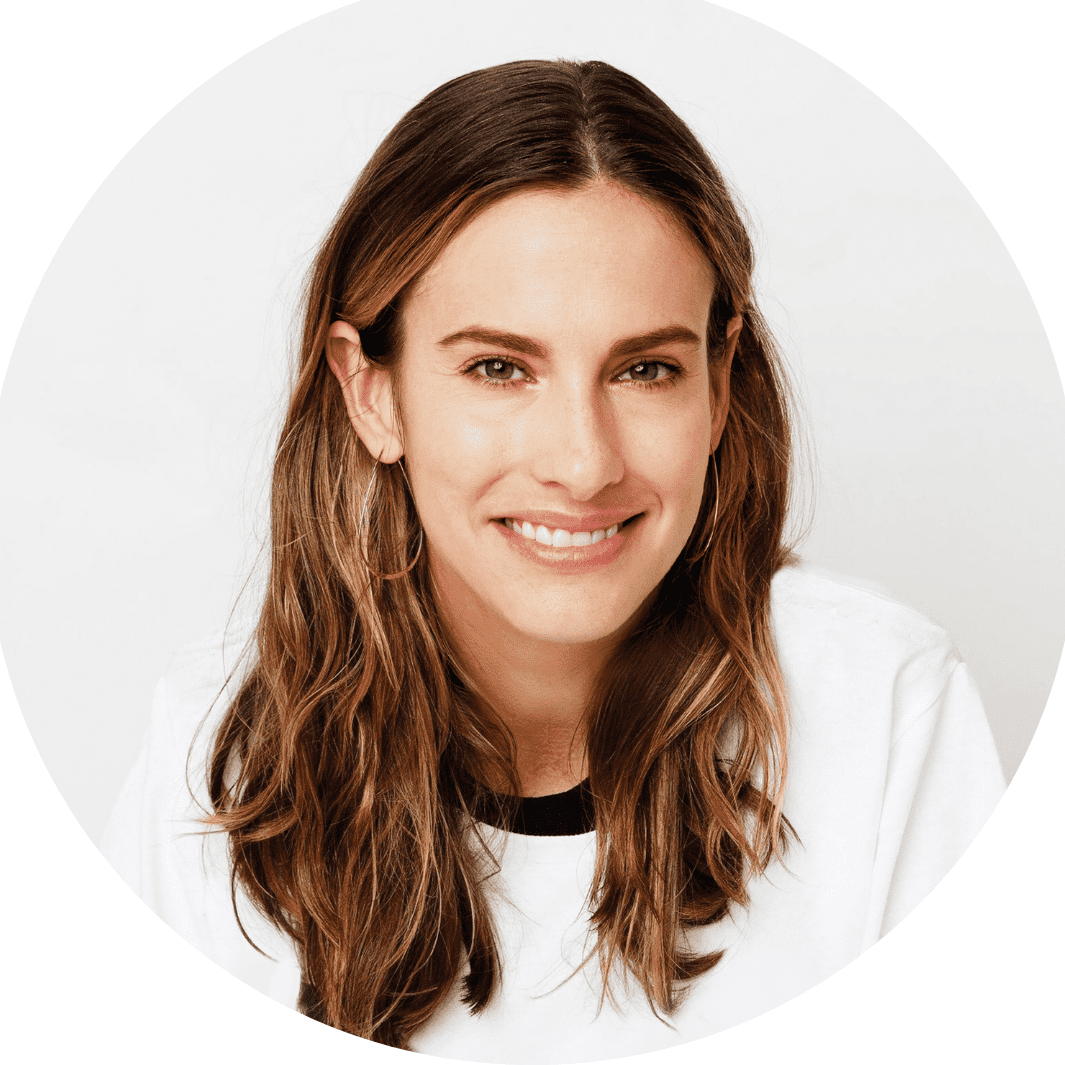
Christina Mallon
Guest Contributor
Christina Mallon leads Inclusive Design at Wunderman Thompson, where she consults brands on how to implement inclusive design practices into their business strategies. Christina is a woman at the forefront of an important movement towards inclusivity in design and advertising. She has a unique and special voice, championing individuals often ignored by these industries – particularly those with disabilities. At the start of Christina’s professional career, her arms slowly became paralyzed. The transition to “disabled” was challenging but has never slowed her down for a second. As a young digital marketing professional starting her career with a “disability” she felt under-represented as a consumer. Rather than being discouraged, she recognized the opportunity to grow awareness and make a measurable impact within the industry. This realization inspired her to start an inclusive design practice at Wunderman Thompson and lead one of the only incubators focused on wearable tech for people with disabilities called Open Style Lab at MIT & Parsons. She has partnered with brands like The Wing, Macy’s, IKEA, Tommy Hilfiger, & Microsoft on how to make their customer experiences more inclusive. Christina’s work around inclusive design has received world-wide attention and has been featured in Fast Company, Vogue, NBC News, PBS, Hulu and BBC. Also, she received Smithsonian’s Emerging Designer of the Year 2019, Ad Age 40 under 40 and Creative of the Year, and Business Insider’s Rising Stars.
